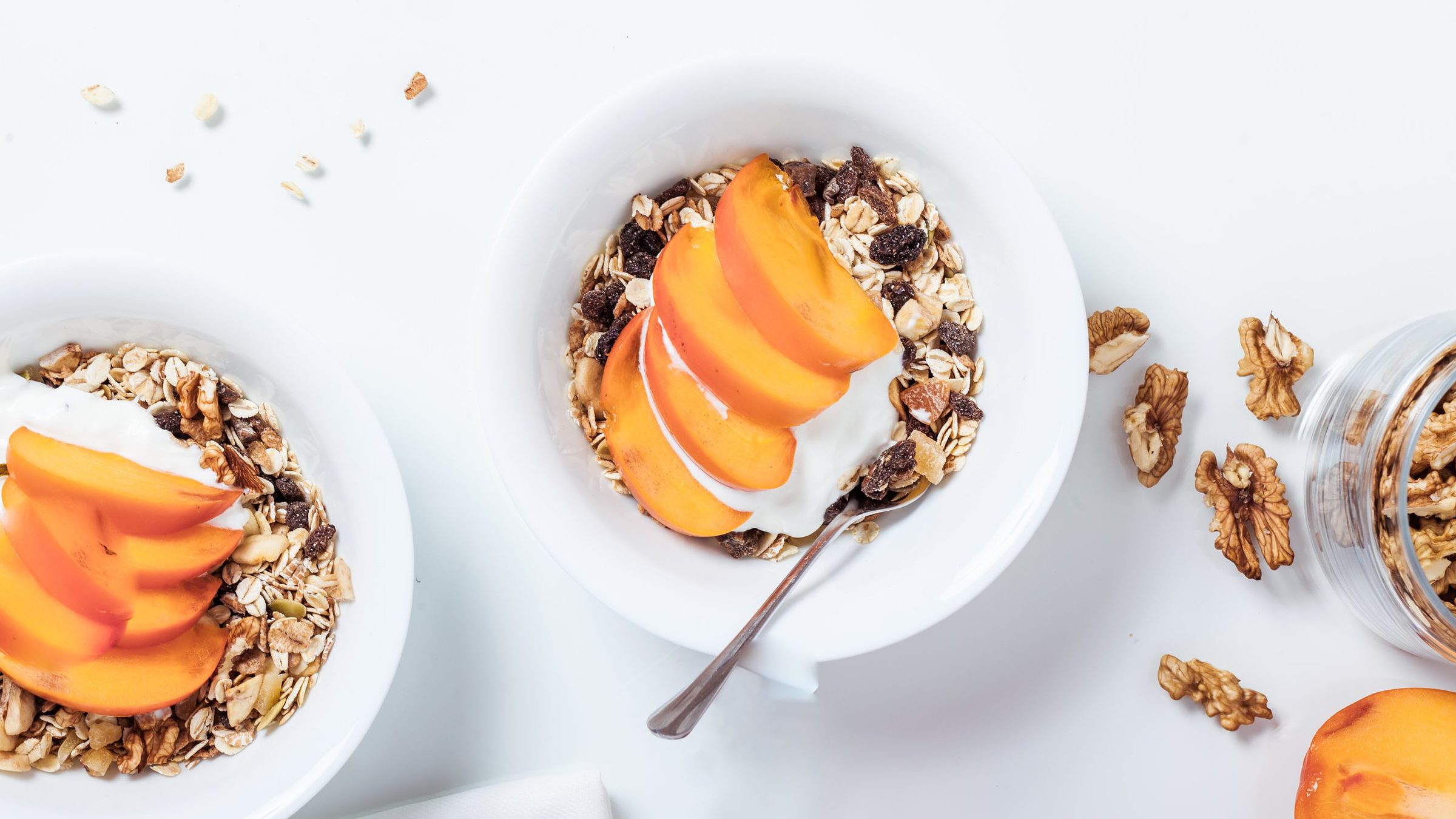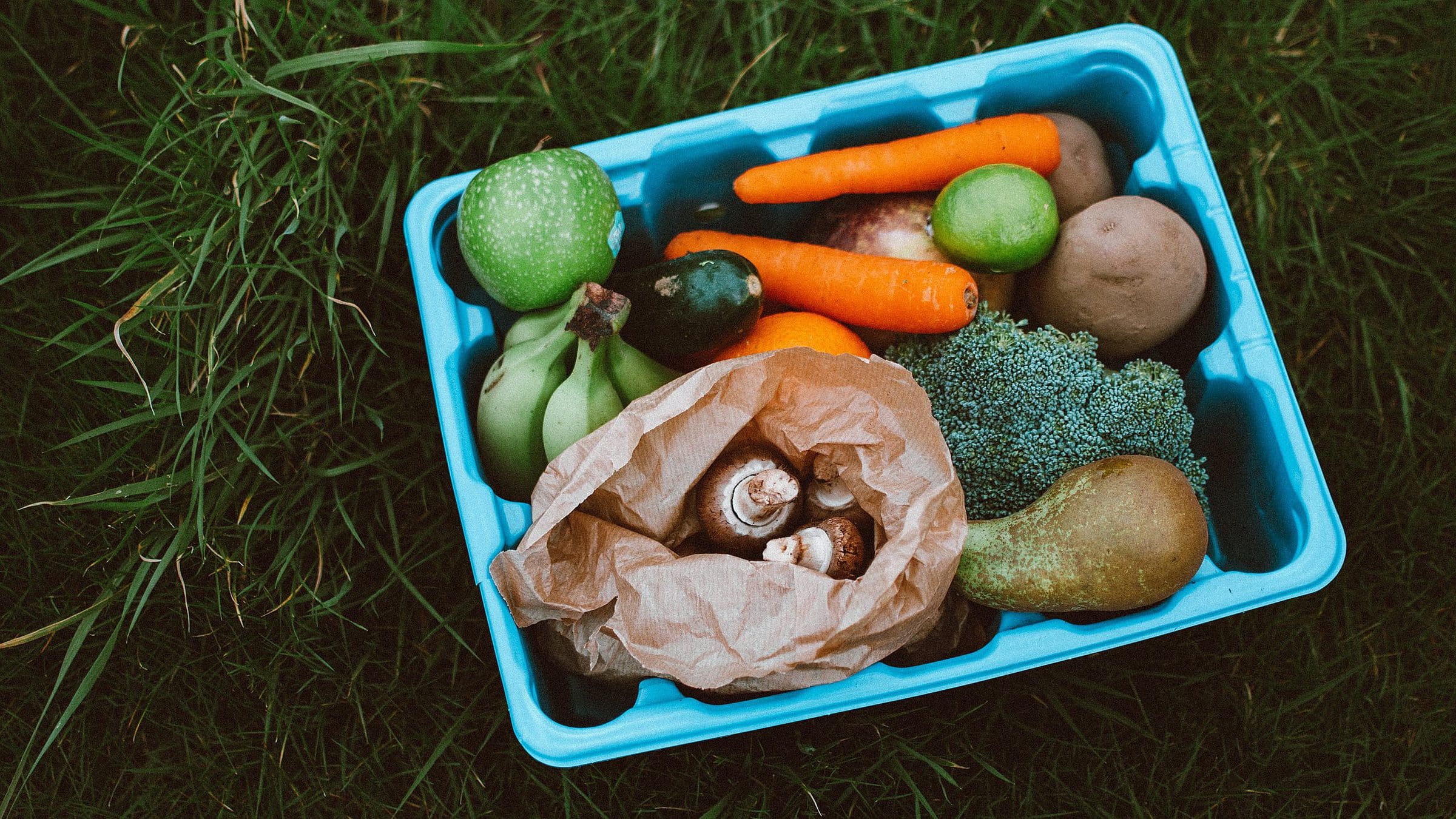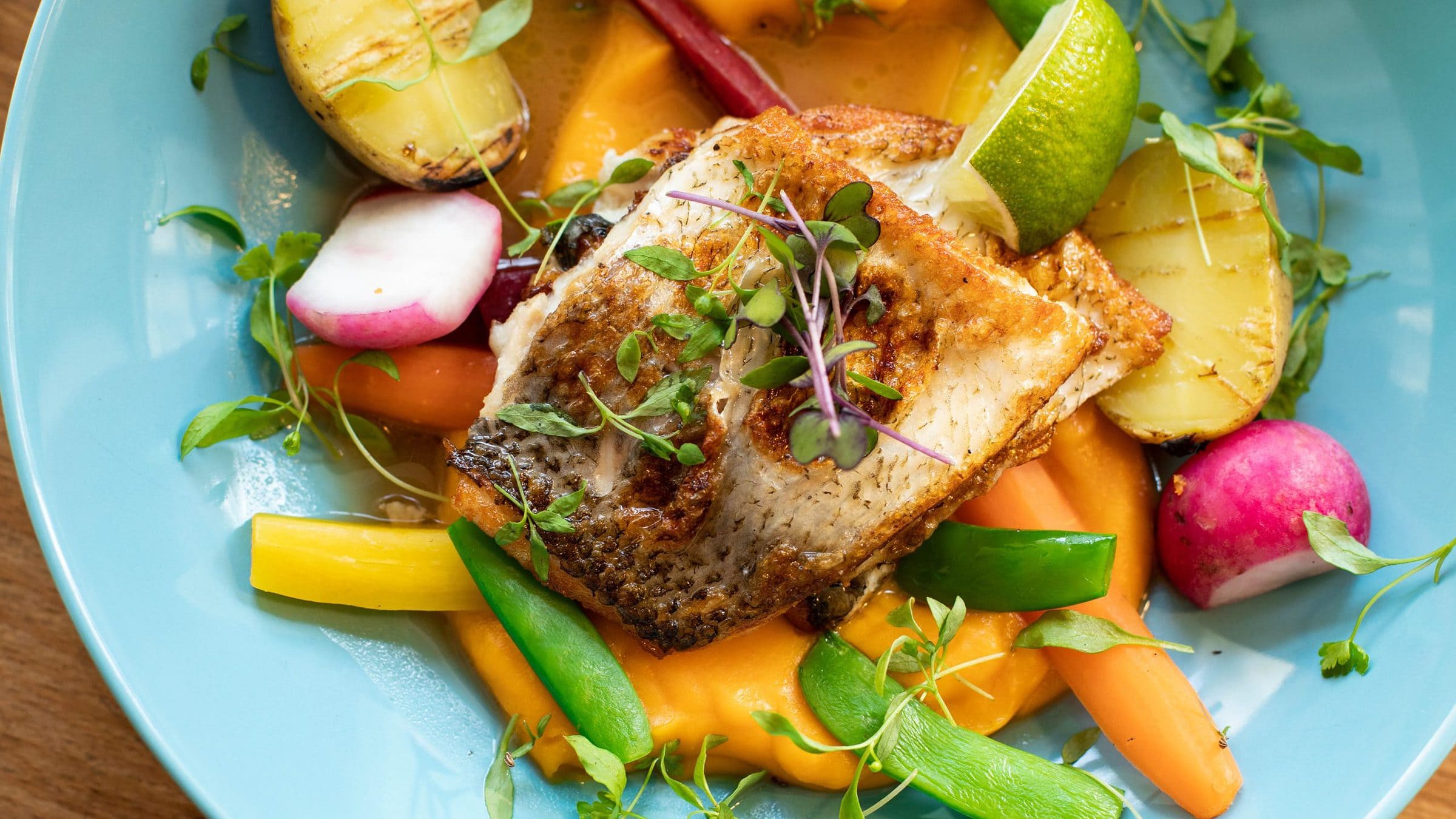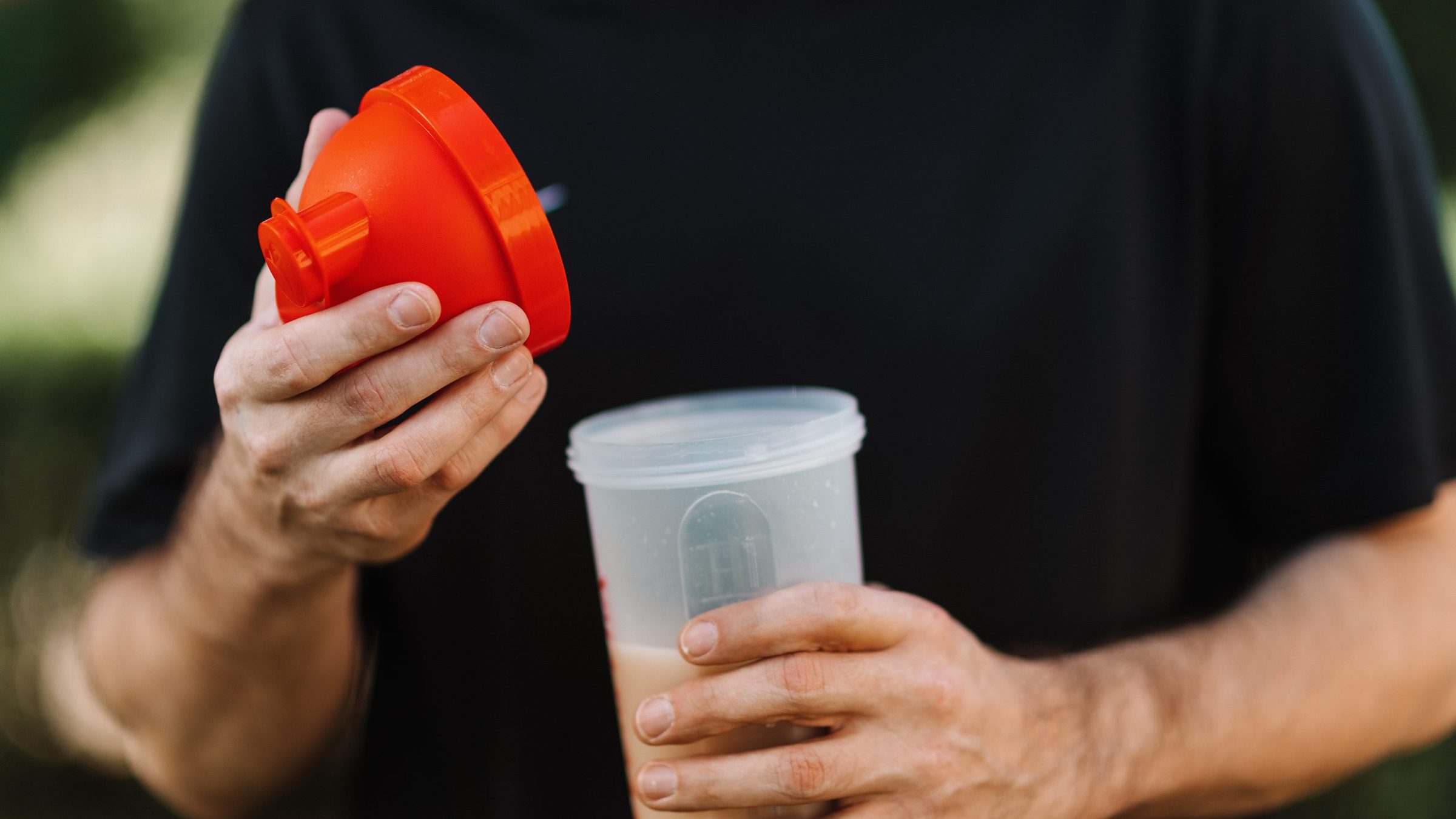We hear a lot about calcium when we’re young and even later in life. But in our 20s, 30s and 40s, we tend to forget about our daily calcium intake. In fact, many Australians don’t get enough calcium throughout the day (aside from their morning coffee).
Calcium is an essential mineral for growing and maintaining healthy bones and teeth. Plus, getting your daily calcium intake means you’re preventing possible health issues in the future like osteoporosis.
Not sure if you’re getting enough calcium? Whether you’re plant-based, dairy-free or anything in between, we’re sharing the top calcium-rich foods to add to your diet.
Ready to protect your bones and fill your plate with foods rich in calcium? Let’s dive in.
Why it’s important to eat foods high in calcium

As you probably know, calcium is a mineral that’s responsible for healthy bones and teeth. But it also plays an important role in blood clotting, muscle tissue, nerve functioning and regulating normal health rhythm.
If you’re not getting enough calcium circulating in your blood from food, your body ends up using hormones to reduce the amount of calcium your kidneys expend in your urine. Eventually, your body removes calcium from your bones which can cause weak and brittle bones — something we all want to avoid.
You might think that calcium is something that’s important when you’re young or older to grow and maintain healthy bones and teeth. But, it’s important throughout all stages of your life so you don’t end up with more serious health concerns like osteoporosis (a condition where your bones can become so fragile they easily fracture).
The amount of calcium your body needs depends on your life stage, and age and there are certain groups of people who have special calcium needs. These include:
- Babies: Infants who are formula-fed need more calcium than babies who are breastfed because calcium in the formula isn’t absorbed as efficiently as breast milk.
- Young children: Since skeletal tissue is constantly growing, young children need to meet their daily calcium requirements.
- Teenagers: When you’re a teenager, there are lots of bodily changes going on with puberty which makes it important to meet calcium intake goals. Plus, by getting enough calcium throughout your younger years (even in your 20s, 30s, and 40s), you’ll be less likely to develop osteoporosis in later life.
- Elderly people: With age, the skeleton loses calcium. In fact, both men and women lose bone mass. So, you need to be boosting your calcium intake as a way to replace these losses. Plus, women generally need more calcium since they lose more calcium from their bones during menopause.
How much calcium should you be getting per day?
Are you wondering how much calcium you need? Well, it really depends on your age.
The Australian Dietary Guidelines recommend that two to three servings of dairy foods per day will give you a healthy, balanced diet and get people reaching the recommended dietary intake of calcium.
To get more specific, women aged 19-50 should be consuming around 1,000mg of calcium per day, while women aged 51-70 need to boost their intake to 1,300mg per day. For men aged 19-70, they should be consuming 1,000mg of calcium per day.
Getting enough calcium when you’re plant-based
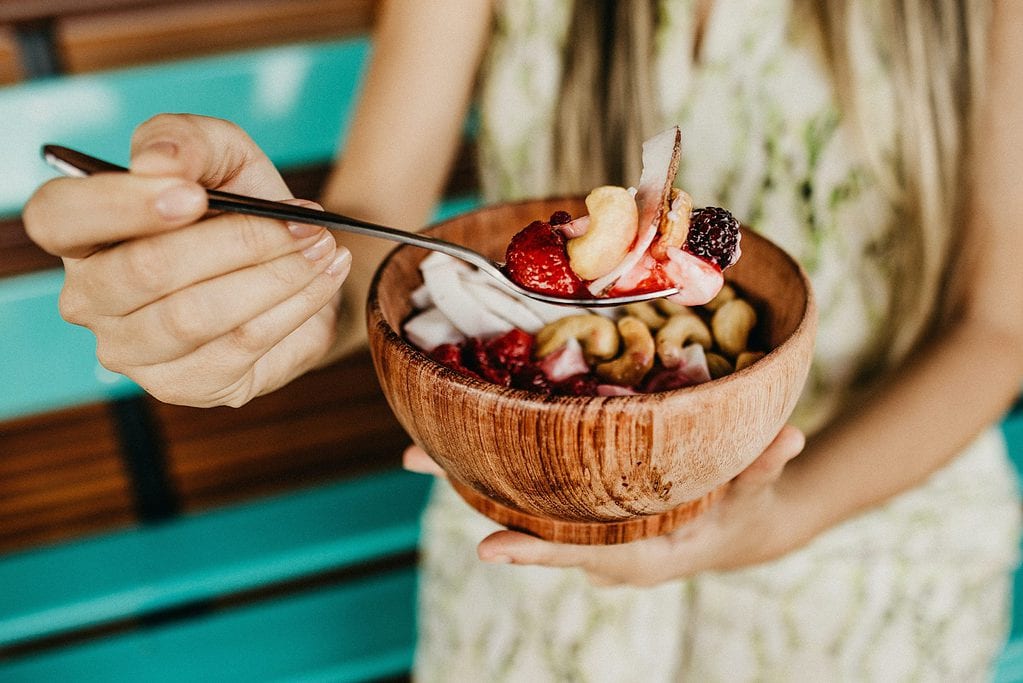
The relationship between calcium and plant-based diets is slightly more complicated. Since most sources of calcium come from dairy products like milk, yoghurt and cheese, following a vegetarian or vegan diet can limit your calcium intake.
One study did find that fish eaters, vegetarians and vegans all had a higher risk of hip fractures which could be explained by lower intakes of calcium and protein than meat eaters. Another study found that vegans have a lower bone mineral density in comparison to non-vegans.
But, not getting enough calcium isn’t just something you see when you’re plant-based. Over half of all Australians aren’t getting enough calcium from their diet and 73% of women and 51% of men consume less calcium than recommended.
Although following a plant-based diet means you’re not getting enough calcium from dairy products, there are still plenty of non-dairy foods high in calcium that vegans and vegetarians can enjoy (so keep reading for our suggestions!)
Symptoms and signs you’re not getting enough calcium
Generally, there aren’t any short-term signs and symptoms of a calcium deficiency. But over time, not getting enough calcium can lead to low bone mass, risk of osteoporosis and hypocalcemia.
Hypocalcemia is a treatable condition, but it occurs when the levels of calcium in your blood are too low. Some signs and symptoms of hypocalcemia to look out for include:
- Muscle cramps in your back and legs
- Dry, scaly skin
- Brittle nails
- Coarse hair
- Confusion
- Memory problems
- Irritability and restlessness
- Depression
- Abnormal heart rhythms
Our advice? If you’re concerned about your calcium levels make sure to chat with your GP, who will be able to run a few tests and provide tailored advice based on your results.
Dairy foods with the highest calcium
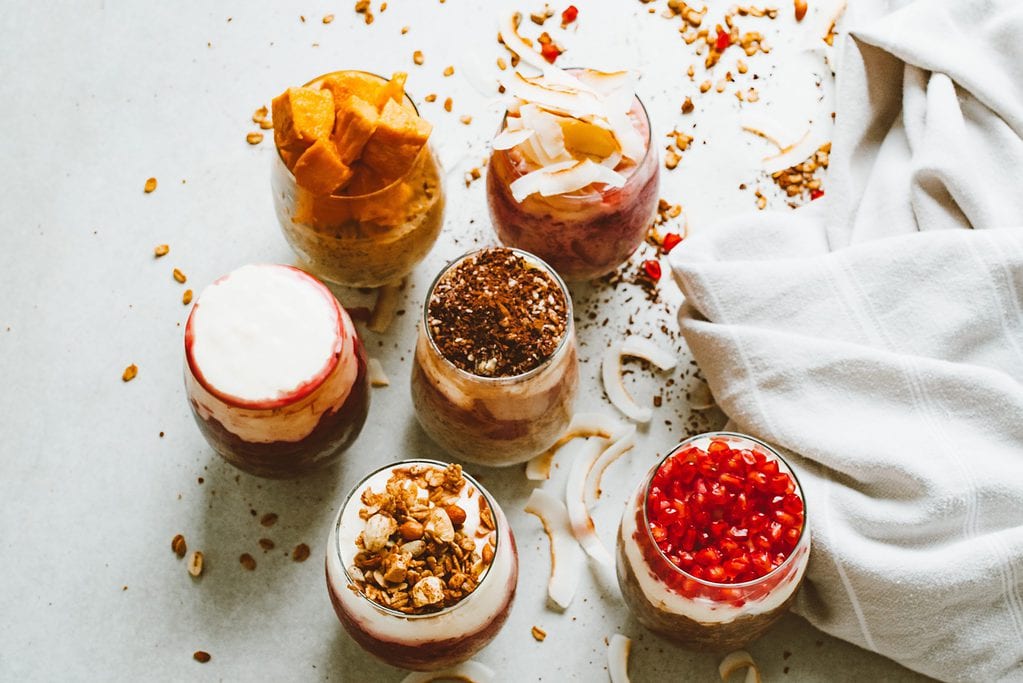
Now the bit you’ve been waiting for: our guide to foods that are high in calcium.
The best way to make sure your body has enough calcium is by eating foods high in calcium such as dairy products. Here are some calcium-rich foods for bones to include in your diet:
- Cheese
- Milk
- Yoghurt
- Cottage cheese
Did you know that one cup of milk or 200g of yoghurt offers 300mg of calcium? Plus, if you opt for calcium-fortified milk, you can increase your intake with ease.
Non-dairy foods with the highest calcium
Just like with iron, you absorb more calcium from dairy products and fortified foods in comparison to plant-based calcium-rich foods.
But, there are still plenty of calcium-rich vegan foods and non-dairy foods high in calcium to eat including:
- Leafy greens including spinach, kale, broccoli (which has the highest iron absorption rate of all leafy greens!) and bok choy
- Chia seeds
- Tahini
- Tofu (one cup of tofu contains a whopping 832 mg of calcium)
- Fortified juice
- Almond, soy and rice milk
- Edamame
- Almonds
- Nuts and seeds
- Figs
Absorbing calcium also means your body needs Vitamin D so make sure you’re getting enough sun and eating enough foods with vitamin D like fortified milk, cereal and mushrooms.
Calcium-rich healthy meals and snacks
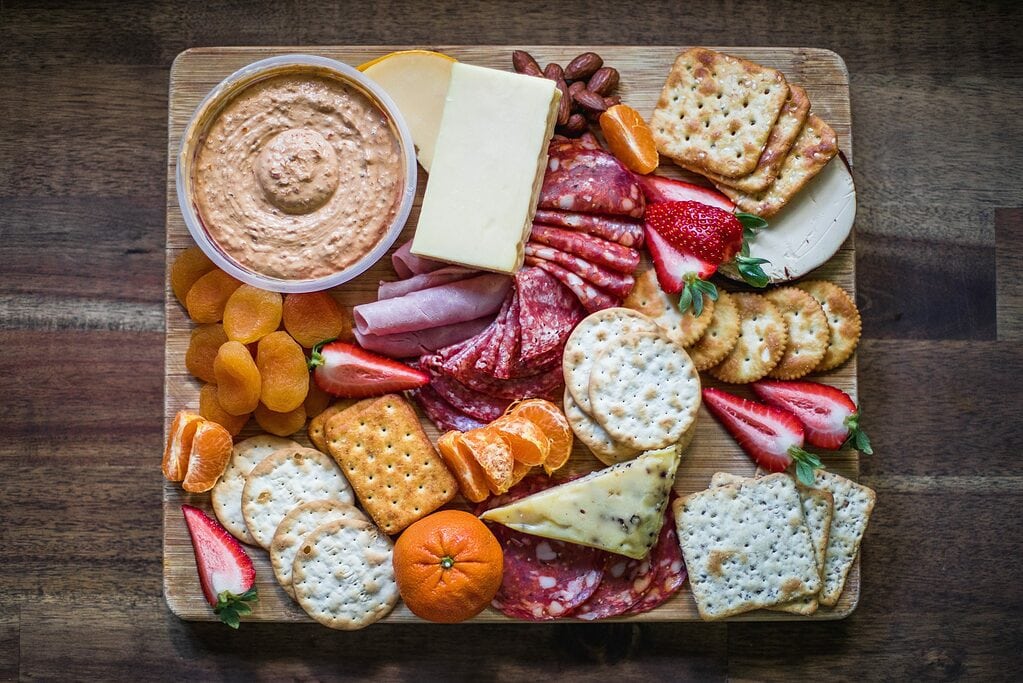
In case you’ve got limited time to whip up your meals (don’t we all?), we’ve rounded up some quick meal and snack ideas that are high in calcium.
- Cheesy omelette
- Yoghurt and fruit
- Canned sardines
- Spinach and mushroom quiche
- Cinnamon overnight oats with chia seeds
- Chicken and parmesan pasta
- Chocolate mousse
We tend to forget about the importance of calcium and why it’s needed to grow and maintain healthy bones and teeth. Whether you’re vegan, vegetarian or you eat dairy products, there are plenty of foods that are high in calcium available to incorporate into your diet and help you unlock healthy bones for life.
As a program focused on overall wellbeing, Noom helps you achieve better health at any age. Through our bitesized lessons and easy food tracking, you’ll begin to understand how certain foods contribute to how your body looks, feels and performs.
Learn more about how Noom can help you achieve your health goals today.
